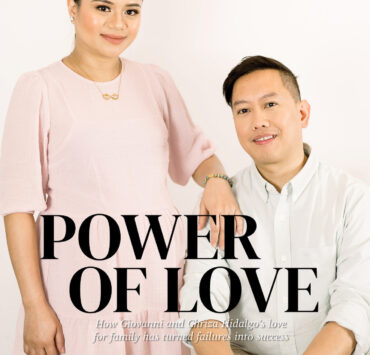Filipina expat and ex nun Paulita Astillero left the congregation to dedicate her life to serving fellow migrants in Spain, and those returning home to the Philippines.
“Uuwi ba kayo sa atin? Are you going back home to the Philippines for good?” Paulita “Sis Pau” Astillero would ask a retiring lolo or lola this question when she was still the president of Centro Filipino-Tuluyan San Benito, a Filipino social and cultural organization in Barcelona.
She learned that after living abroad for so many years, Filipino migrants feel that their families have changed. That whenever they decide to go home, they need a lot of adjustments. That it takes time to embrace each other’s evolution, newly acquired habits, mentality, rationality and beliefs.
In 2007, Sr. Pau and two other Centro Filipino volunteers participated in a two-year course offered by Caritas Diocesana de Barcelona. For their final project, they proposed to put up a center for returning migrants in the Philippines.
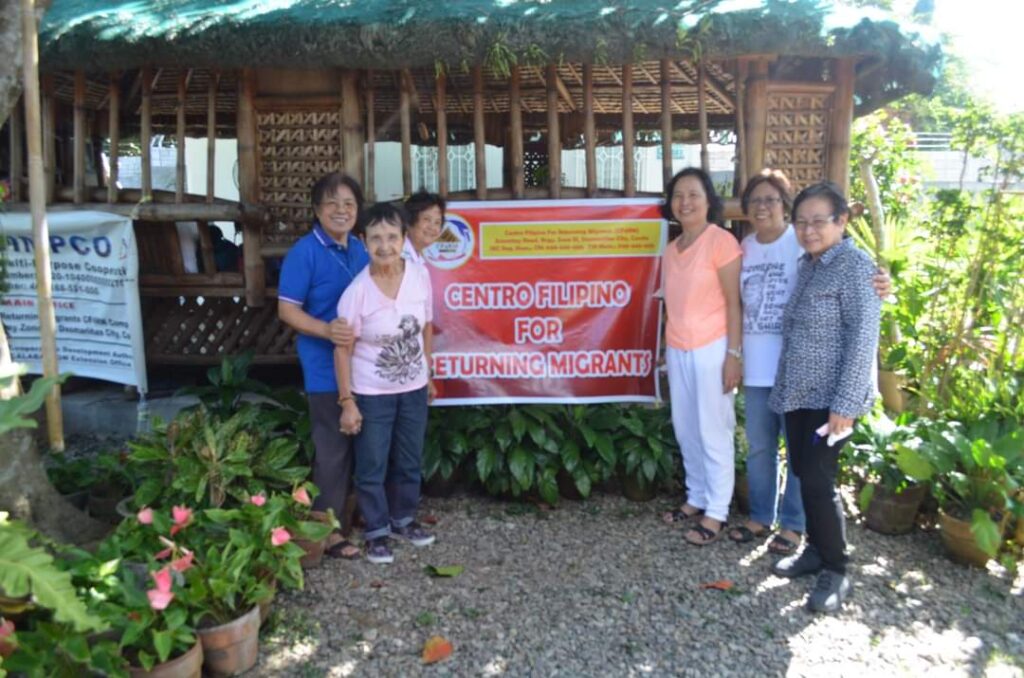
Sis Pau knew that she had to make the project a reality. After the course, she went to the Philippines to scout for the right people to help her with the project. Four priests liked the idea. The late Father Avelino Sápida, founder of the Filipino Parish in Barcelona and Centro Filipino donated a piece of land in Cavite to be the site of the proposed Center. In 2013, Centro Filipino for Returning Migrants (CF4RM) was registered as a non-stock, non-profit church-based organization before the Philippine Securities and Exchange Commission. A year later, Sis Pau decided to move to the Philippines to dedicate her time to building the new Center. She didn’t mind living in a container van which served as the Center´s office.
“The greatest challenge is money. There was even a time when we didn’t have food to eat. But then somebody would just come to visit with food. I just put my trust in the Lord. I feel challenged because I see how much OFW returnees suffer the painful process of readjustment and reintegration in their family and their environment, and how they have to rebuild their life preparing for their twilight years.”
Sr. Pau
With the help of different private groups and individuals, the Center was coming together, first the kitchen annex, then a bahay kubo which serves as the reception area, then the fence, the gate and soon the multi-purpose center.
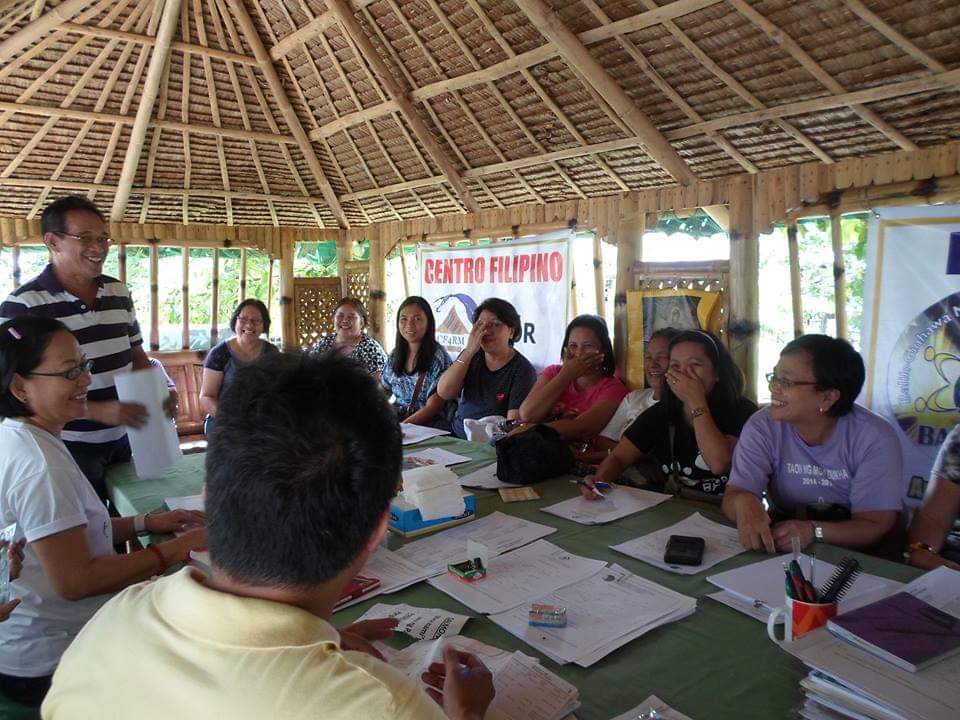
A migrant and a missionary
The daughter of a road builder and a dressmaker from the Camotes Islands, Cebu, Sis Pau´s eventful journey as a migrant started when she went to Rome in 1988 to be part of the Missionary Benedictine Congregation. Aside from her duties inside the monastery, Sis Pau visited a small Filipino community in Rome to listen to their problems, from loneliness to joblessness and relationship issues.
After a year, she was assigned to Madrid to help both the Benedictine and the Pinoy communities there. From Madrid, she was sent to Barcelona to work as a Centro Filipino volunteer together with the other Benedictine sisters and Fr. Avelino Sápida.
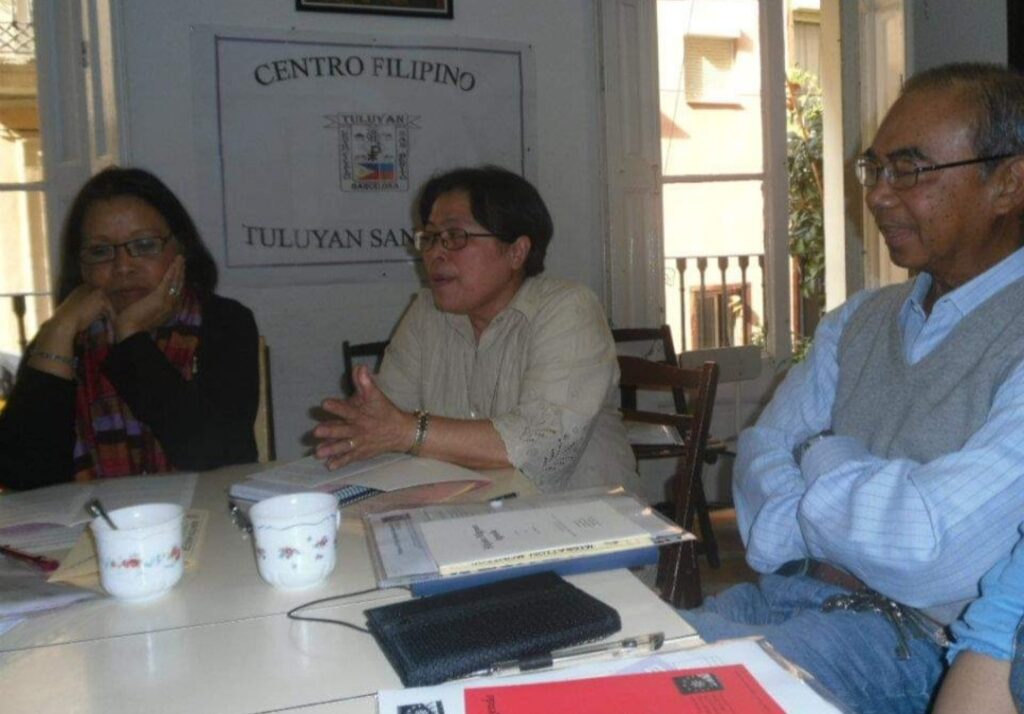
In 1995, Sis Pau was diagnosed with cancer, but she remained undaunted and steadfast in her role as a missionary. After undergoing treatments and having been declared cancer-free a year later, she was back to Madrid to be the directress of the congregation´s student dormitory. Six years later, her next assignment was Argentina. “There weren’t a lot of Filipinos in Argentina. I was hesitant. I felt that I was needed in Barcelona, but I also love the congregation. My superior told me either to go to Argentina or leave. It was really painful.”
Sis Pau realized that her calling was not to live a monastic life. It was to serve her fellow migrants wherever they are. After leaving the congregation, she became the president of Centro Filipino in 2005. Even though she is no longer a nun, people still call her Sis Pau, a term which she finds endearing.
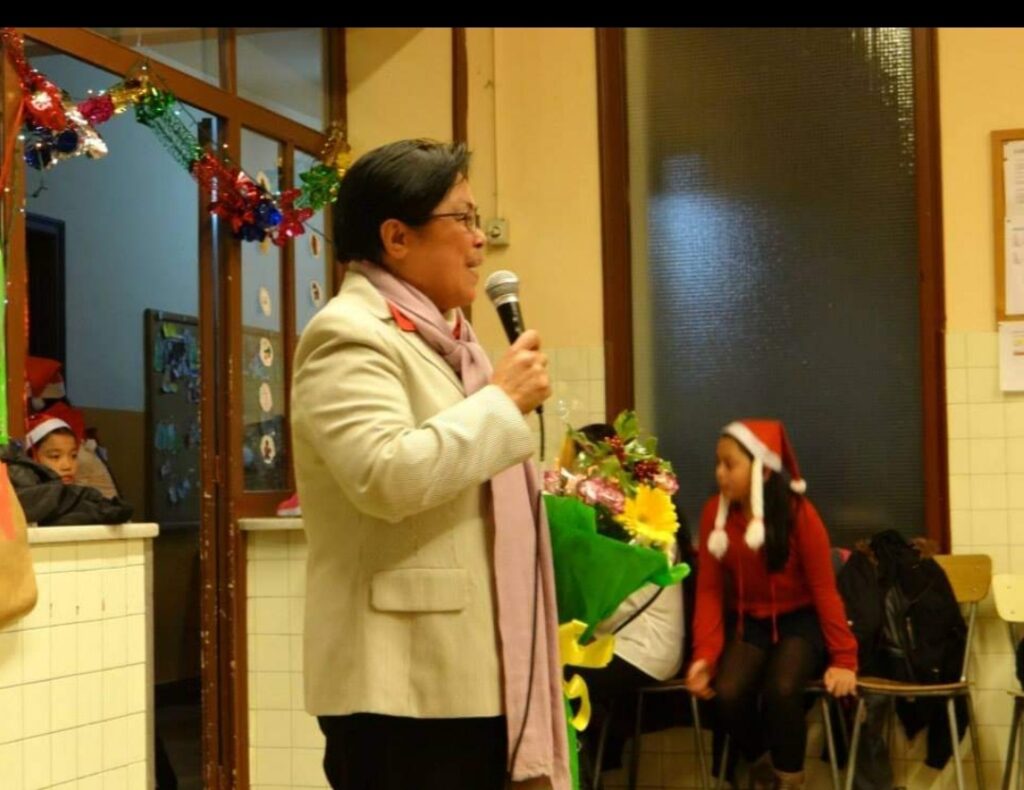
Under her watch, Centro Filipino thrived and grew. Its programs such as Iskwelang Pinoy, Spanish classes, migrant youth trainings, social works with the Red Cross became more functional and active. She was on call 24 hours to accompany kababayans to their lawyers to fight labor malpractices, to assist the sick in hospitals, to help the undocumented and victims of domestic violence. She also guides newly formed Filipino associations on how to become legally registered and regularized.

Not a job, but a mission
Sis Pau considers the birth of CR4RM as the most significant thing in her life as a migrant.
“Ever since it was built, the Center has been visited by various Filipino overseas workers. We listen to their stories. It is heartwarming. I am grateful. “
Sr. Pau
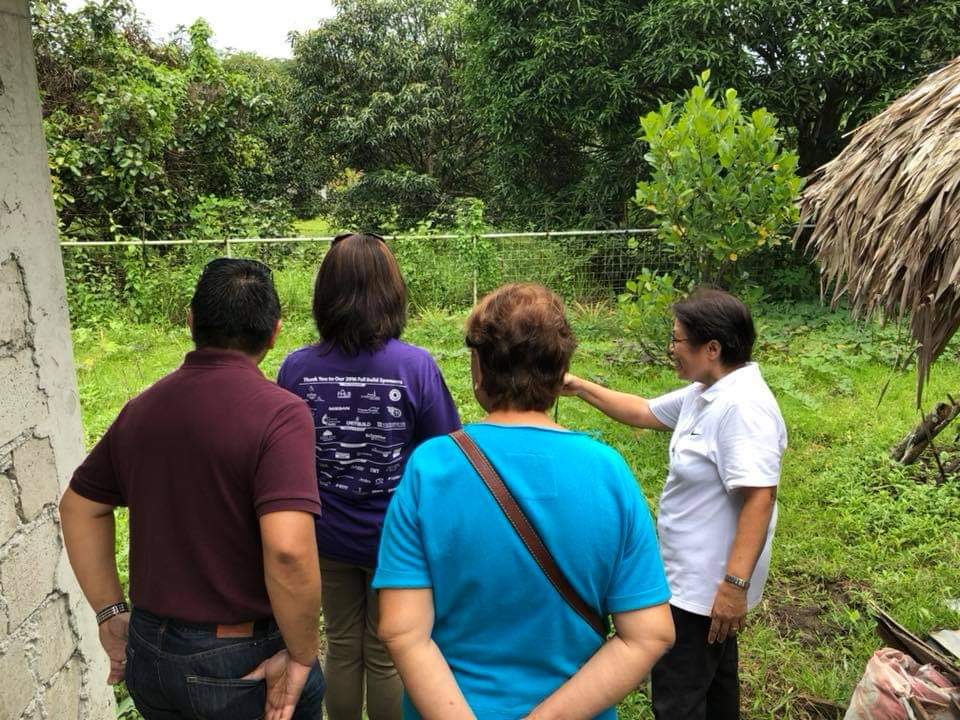
Today, CF4RM is in full swing. It has partnered with DOST, DA-ATI, PCLEDO, the Diocese of Cavite, local and international communities in order to upgrade its socio-cultural program, integrated urban farming system, Pinoy Ginahawa livelihood initiative, which all have become the core activities of the Center. It has now 350 members all over the world and 1,050 beneficiaries which include the residents around the Center.
Now 70 years old, retiring is not in Sis Pau´s agenda. She visits Spain once or twice a year to coordinate with Spain-based members and to raise funds. In her recent visit to Europe, she endured the 12-hour bus ride from Barcelona to Geneva to introduce CF4RM to Switzerland-based Filipinos.
“It is hard to stop. As long as I still have the strength and will to serve people. There is no retirement soon. This is not a job. This is my mission.”
Sr. Pau
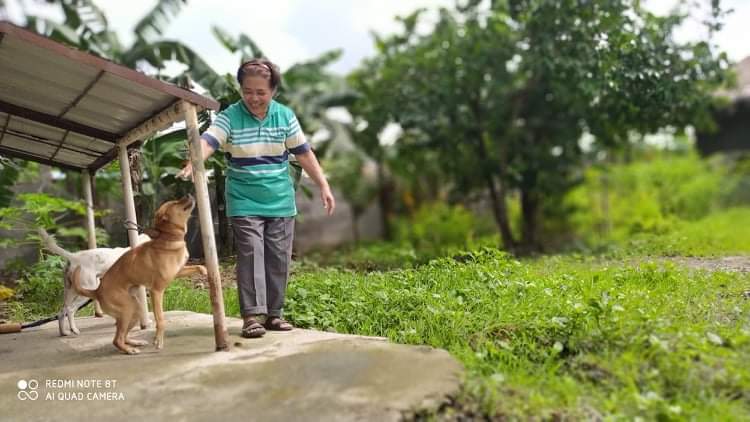
Sis Pau believes that she has gone far but not yet there. “I still have a long way to go. There are lot of things to be done in the Center. I long for the time that CF4RM becomes self-sufficient. To be a place where migrant workers, especially those who were not lucky in their quest abroad, may feel provided, taken care of and find new opportunities and ways to start a new life.”
This article was previously published in TFEM Autumn/Winter Issue 2021.
What's Your Reaction?
Nats Sisma Villaluna has been serving the Filipino community in Spain for more than 15 years. His volunteer works include teaching Spanish to Filipinos, and as artistic director of the Coro Kudyapi, a group of musically inclined young Filipinos in Barcelona. His passion to serve the Filipino community now extends to other countries in his role as Publisher and Editor-in-Chief of the new The Filipino Expat Magazine.



